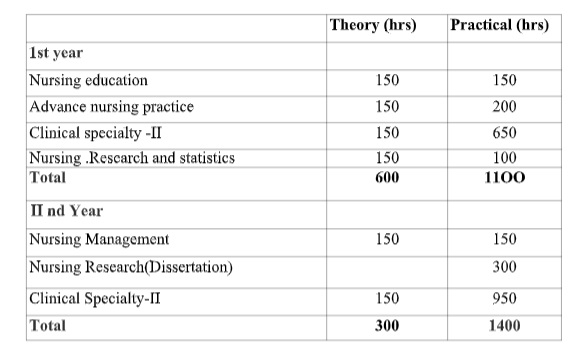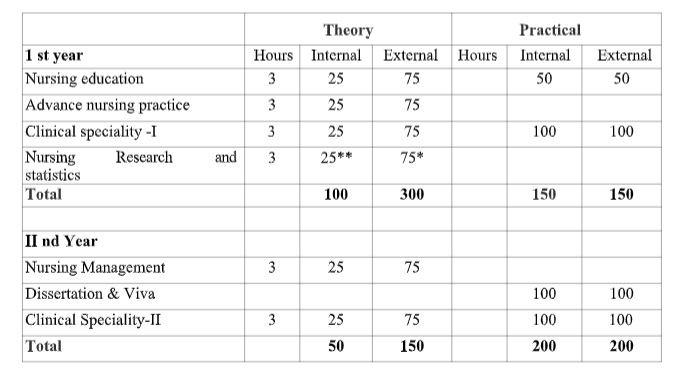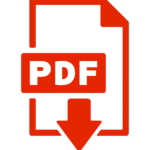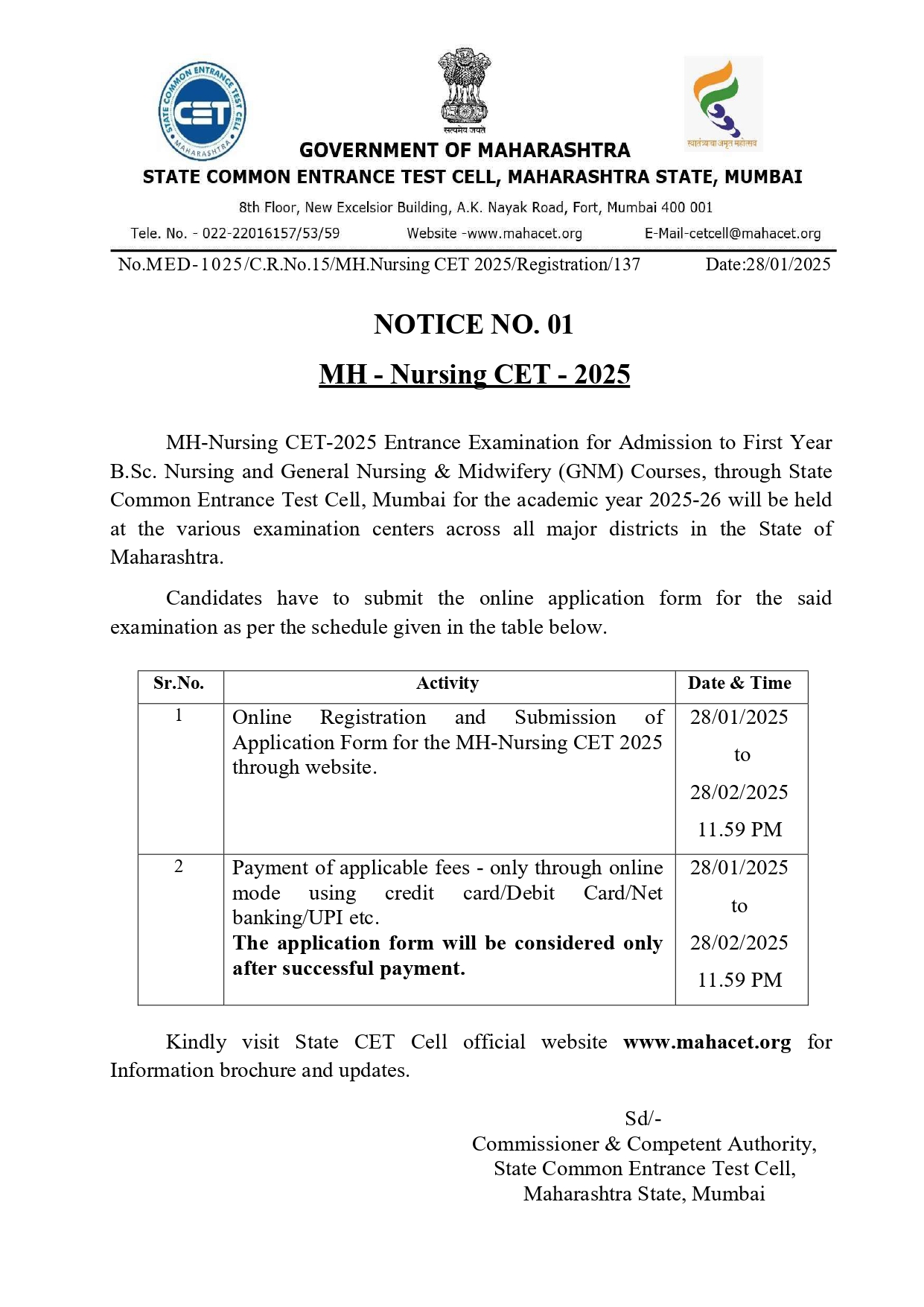

* Nursing research = 50 and statistics = 25
**Nursing research = 15 and statistics = 10
First Year
Second Year
Terna, one of the best MSc Nursing Colleges in Mumbai aims to prepare nurses to assume responsibilities as nurse specialist, consultants, educators, administrators in a wide variety of professional setting.
On completion of M.Sc. Nursing degree programme from the best MSc Nursing Colleges in Maharashtra, graduates will be able to:
1. Utilize/apply the concepts, theories and principles of nursing science
2. Demonstrate advance competence in practice of nursing;
3. Practice as a nurse specialist.
4. Demonstrate leadership qualities and function effectively as nurse educator and manager.
5. Demonstrate skill in conducting nursing research, interpreting and utilizing the findings from health-related research
6. Demonstrate the ability to plan and effect change in nursing practice and in the health care delivery system.
7. Establish collaborative relationship with members of other disciplines
8. Demonstrate interest in continued learning for personal and professional advancement.
Sr. No.
Name of the Course
Course Outcomes
Placement: First year M.Sc. Nursing
At the end of the course, students will be able to:
1.
Advance Nursing Practice
2. Describe ethical, legal, political and economic aspects of health care delivery and nursing practice.
3. Explain bio- psycho- social dynamics of health, life style and health care delivery system
4. Discuss concepts, principles, theories, models, approaches relevant to nursing and their application.
5. Describe scope of nursing practice.
6. Provide holistic and competent nursing care following nursing process approach.
7. Identify latest trends in nursing and the basis of advance nursing practice.
8. Perform extended and expanded role of nurse
9. Describe alternative modalities of nursing care.
10. Describe the concept of quality control in nursing.
11. Identify the scope of nursing research.
12. Use computer in patient care delivery system and nursing practice.
13. Appreciate importance of self development and professional advancement
2.
Nursing Education
2. Describe the teaching learning process.
3. Prepare and utilize various instructional media and methods in teaching learning process.
4. Demonstrate competency in teaching, using various instructional strategies.
5. Critically analyze the existing nursing educational programs, their problems, issues and future trends.
6. Describe the process of curriculum development, and the need and the methodology of curriculum changes, innovation and integration.
7. Plan and conduct continuing nursing education programs.
8. Critically analyze the existing teacher preparation programs in nursing.
9. Demonstrate skill in guidance and counselling.
10. Describe the problems and issues related to administration of nursing curriculum including selection and organization of clinical experience.
11. Explain the development of standards and accreditation process in nursing education programs.
12. Identify research priorities in nursing education.
13. Discuss various models of collaboration in nursing education and services.
14. Explain the concept, principles, steps, tools and techniques of evaluation.
15. Construct, administer and evaluate various tools for assessment of knowledge, skill and attitude.
3.
Nursing research and
2. Review literature utilizing various sources
3. Describe research methodology
4. Develop a research proposal.
5. Conduct a research study.
6. Analyze and interpret the research data
7. Communicate research findings
8. Utilize research findings
9. Critically evaluate nursing research studies
10. Write scientific paper for publication
Statistics
2. Describe the scope of statistics in health and nursing
3. Organize, tabulate and present data meaningfully
4. Use descriptive and inferential statistics to predict results.
5. Draw conclusions of the study and predict statistical significance of the results.
6. Describe vital health statistics and their use in health related research
7. Use statistical packages for data analysis.
4.
Clinical Speciality I Medical Surgical Nursing
2. Apply concepts and theories related to health promotion.
3. Appreciate the client as a holistic individual
4. Perform physical, psychosocial assessment of Medical Surgical patients.
5. Apply Nursing process in providing care to patients
6. Integrate the concept of family centered nursing care with associated disorder such as genetic, congenital and long-term illness.
7. Recognize and manage emergencies with Medical Surgical patients.
8. Describe various recent technologies and treatment modalities in the management of critically ill patients.
9. Appreciate the legal and ethical issues relevant to Medical Surgical Nursing.
10. Prepare a design for layout and management of Medical Surgical units.
11. Appreciate the role of alternative systems of medicine in care of patients.
12. Incorporate evidence-based Nursing practice and identity the areas of research in the field of Medical Surgical Nursing.
13. Recognize the role of Nurse practitioner as a member of the Medical Surgical health teams.
14. Teach Medical Surgical Nursing to undergraduate nursing students and in-service nurses
Clinical Speciality I Community Health Nursing
2. Appreciate the role of individuals and families in promoting health of the Community.
3. Perform physical, developmental and nutritional assessment of individuals, families and groups.
4. Apply the concepts of promotive, preventive, curative and rehabilitative aspects of health while providing care to the people.
5. Apply nursing process approach while providing care to individuals, families, groups and community.
6. Integrate the concepts of family centered nursing approach while providing care to the community.
7. Recognize and participate in the management of emergencies,
epidemics and disasters. 8. Apply recent technologies and care modalities while delivering community health nursing care.
9. Appreciate legal and ethical issues pertaining to community
health nursing care. 10. Conduct community health nursing care projects.
11. Participate in planning, implementation and evaluation of various national health and family welfare programmes at local, state and national level.
12. Incorporate evidence based nursing practice and identify the areas of research in the community settings.
13. Participate effectively as a member of Community Health team.
14.Coordinate and collaborate with various agencies operating in the community by using intersectoral and multi-disciplinary approach.
15. Teach community health nursing to undergraduates, in-service nurses and the community health workers.
16. Demonstrate leadership and managerial abilities in community health nursing practice
Clinical Speciality I Child Health Nursing
2. Apply the concepts of growth and development in providing care to the pediatric clients and their families.
3. Appreciate the child as a holistic individual
4. Perform physical, development, and nutritional assessment of pediatric clients
5. Apply nursing process in providing nursing care to neonates and children.
6. Integrate the concept of family centered pediatric nursing care with related areas such as genetic disorders, congenital malformations and long-term illness.
7. Recognize and manage emergencies in neonates.
8. Describe various recent technologies and treatment modalities in the management of high-risk neonates
10. Appreciate the legal and ethical issues pertaining to pediatric and neonatal nursing
11. Prepare a design for layout and management of neonatal units
12. Incorporate evidence-based nursing practice and identify the areas of research in the field of pediatric / neonatal nursing
13. Recognize the role of pediatric nurse practitioner and as a member of the pediatric and neonatal health team
14. Teach pediatric nursing to undergraduate students and in- service nurses
Clinical Speciality I Obstetric and Gynaecological Nursing
2. Describe the population dynamics and indicators of maternal and child health
3. Describe the concepts of biophysical, psychological and spiritual aspects of normal pregnancy, labor and puerperium.
4. Provide comprehensive nursing care to women during reproductive period.
5. Integrate the concepts of family centered nursing care and nursing process approach in obstetric and gynecological nursing.
6. Identify and analyze the deviations from normal birth process and refer appropriately.
7. Describe the pharmacological agents, their effects during pregnancy, child birth, puerperium, lactation and the role of nurse
8. Counsel adolescents, women and families on issues pertaining to pregnancy, child birth and lactation
9. Describe the role of various types of complementary and alternative therapies in obstetric and gynecological nursing
10. Incorporate evidence based nursing practice and identify the areas of research in the field of obstetric and gynecological nursing
11. Describe the recent advancement in contraceptive technology and birth control measures.
12. Appreciate the legal and ethical issues pertaining to obstetric and gynaecological nursing
Placement: Second year M.Sc.
At the end of the course, students will be able to:
1.
Nursing Management
2. Identify trends and issues in nursing.
3. Discuss the public administration, health care administration vis a vis nursing administration.
4. Describe the principles of administration applied to nursing.
5. Explain the organization of health and nursing services at the various levels / institutions.
6. Collaborate and co-ordinate with various agencies by using multisectoral approach.
7. Discuss the planning, supervision and management of nursing workforce for various health care settings.
8. Discuss various collaborative models between nursing education and nursing service to improve the quality of nursing care.
9. Identify and analyse legal and ethical issues in nursing administration. 10. Describe the process of quality assurance in nursing services 11. Demonstrate leadership in nursing at various levels.
Clinical Speciality II Medical Surgical Nursing (CVTS)
2. Describe the epidemiology, aetiology, pathophysiology and diagnostic assessment of cardio vascular and thoracic conditions
3. Participate in national health programs for health promotion prevention and rehabilitation of patients with cardio vascular and thoracic conditions
4. Perform physical, psychosocial and spiritual assessment
5. Assist in various diagnostic, therapeutic and surgical procedures
6. Apply nursing process in providing comprehensive care to patients with cardio vascular and thoracic conditions
7. Demonstrate advance skills / competence in managing patients with cardio vascular and thoracic conditions including Advance Cardiac Life Support.
8. Describe the various drugs used in cardio vascular and thoracic conditions and nurses responsibility.
9. Demonstrate skill in handling various equipments / gadgets used for critical care of cardio vascular and thoracic patients
10. Appreciate team work & co-ordinate activities related to patient care.
11. Practice infection control measures
12. Identify emergencies and complications and take appropriate measures
13. Discuss the legal and ethical issues in cardio vascular and thoracic nursing
14. Assist patient and their family to cope with emotional distress, grief anxiety and spiritual needs
15. Appreciate the role of alternative system of medicine in care of patient
16. Incorporate evidence based nursing practice and identify the areas of research in the field of cardio vascular and thoracic nursing.
17. Identify the sources of stress and manage burnout syndrome among health care providers. 18. Teach and supervise nurses and allied health workers.
19. Design a layout of ICCU and ICTU and develop standards for cardio vascular and thoracic nursing practice.
Clinical Speciality II Community Health Nursing
2. Apply epidemiological concepts and principles in community
health nursing practice. 3. Perform community health assessment and plan health programmes.
4. Describe the various components of Reproductive and child health programme.
5. Demonstrate leadership abilities in organizing community health nursing services by using inter-sectoral and multi- disciplinary approach.
6. Describe the role and responsibilities of community health nurse in various national health and family welfare programmes.
7. Participate in the implementation of various national health and family welfare programme
8. Demonstrate competencies in providing family centered nursing care independently
9. Participate/Conduct research for new insights and innovative solutions to health problems.
10. Teach and supervise nurses and allied health workers.
11. Design a layout of sub centre/Primary health centre/Community health centre and develop standards for community health nursing practice.
Clinical Speciality II Child Health Nursing
2. Demonstrate advanced skills/competence in nursing management of children with medical and surgical problems
3. Recognize and manage emergencies in children
4. Provide nursing care to critically ill children
5. Utilize the recent technology and various treatment modalities in the management of high-risk children.
6. Prepare a design for layout and describe standards for management of pediatric units / hospitals
7. Identify area of research in the field of pediatric nursing
Clinical Speciality II Obstetric and Gynaecological Nursing
2. Perform physical, psychological, cultural and spiritual assessment
3. Demonstrate competence in caring for women with obstetrical and gynecological conditions
4. Demonstrate competence in caring for high risk new born
5. Identify and manage obstetrical and neonatal emergencies as per protocol
6. Practice infection control measures
7. Utilize recent technology and various diagnostic, therapeutic modalities in the management of obstetrical, gynecological and neonatal care
8. Demonstrate skill in handling various equipments / gadgets used for obstetrical, gynecological and neonatal care
9. Teach and supervise nurses and allied health workers
10. Design a layout of specialty units of obstetrics and gynecology
11. Develop standards for obstetrical and gynecological nursing practice
12. Counsel women and families
13. Incorporate evidence-based nursing practice and identity the areas of research in the field of obstetrical and gynecological nursing 14. Function as independent midwifery nurse practitioner


